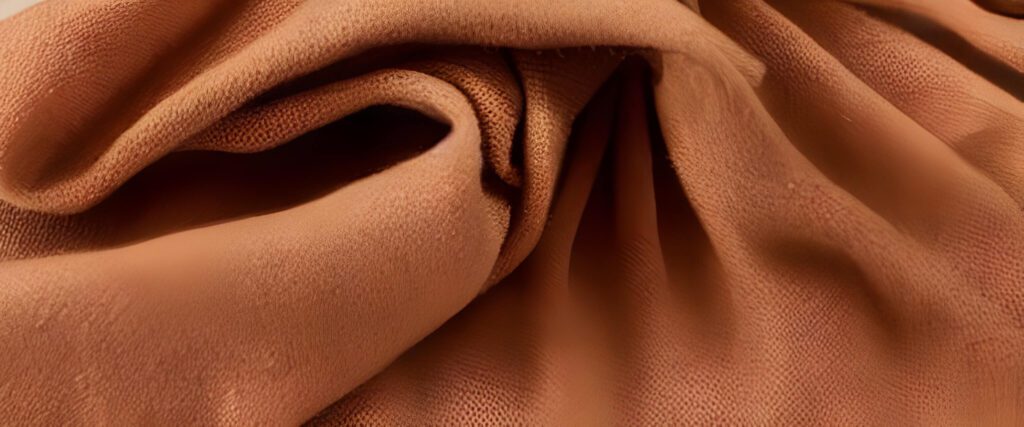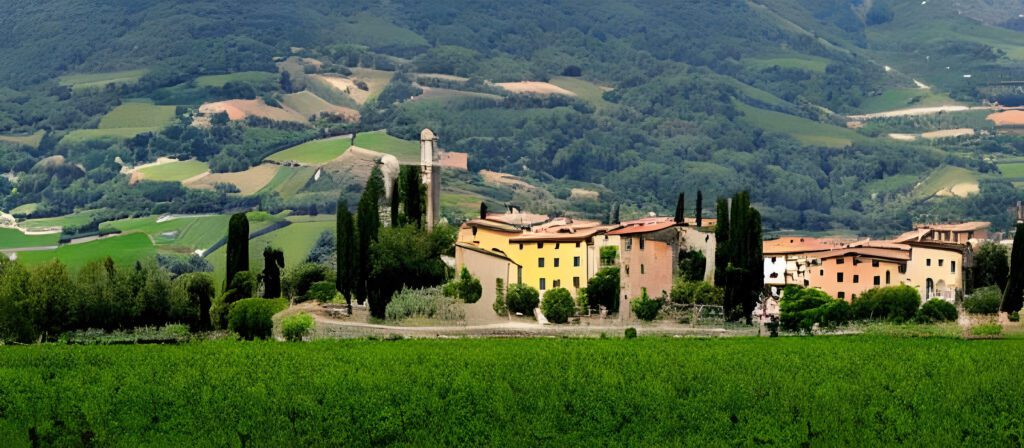In 1978 Brunello Cucinelli founded a luxury fashion brand in Italy, but what’s most remarkable about him is his life’s story. He grew up as the son of a farmer, leading oxen over the fields. He also fondly remembers the Italian cafes, where people would drink coffee at two in the morning, play card games, have discussions about women, philosophy, politics, religion, and spirituality. To him, all of this was a personal university in life and human knowledge.
David Senra did an entire podcast episode on Cucinelli’s book, which I highly recommend listening to.
At the same time, his company is a juggernaut: €919.5 million in revenue in 2022, while paying his suppliers and employees 20% above market rate, and donating 20% of his profits to his charitable foundation in the name of human dignity.
As a young man, he was tempted to become a priest, and loved their monastic lifestyle, the fact that they spent a lot of time in solitude and silent prayer. But one of the priests told him that this wasn’t his path, that his path was entrepreneurship. The priest told him to be of this world, and to help the people in his community through his talents, and to do so with joy.
The importance of respect and dignity
Seeing his father transition from being a content, hard-working but dignified farmer in the Italian countryside to a factory worker in the town, and what it did to his spirit, and the feelings of inadequacy left a deep impression on him:
“When we were living in the countryside, the atmosphere, the ambiance — life was good. We were just farmers, nothing special. Then he went to work in a factory. He was being humiliated and offended, and he was doing a hard job. He would not complain about the hardship or the tiny wages he received, but what he did say was, “What have I done evil to God to be subject to such humiliation?””
After they moved to the city, his family often was looked down upon, belittled, and his mother put great importance on how they dressed—which might have contributed to him going into the fashion business later on.
As much as humiliation can be bad, so can respect and the bestowing of responsibility empower people:
“If we work together, say, and, even with one look, I make you understand that you are worth nothing and I look down on you, I have killed you. But if I give you regards and respect — out of esteem, responsibility is spawned. Then out of responsibility comes creativity, because every human being has an amount of genius in them. Man needs dignity even more than he needs bread.”
He emphasizes creativity again in many places, and wrote in his book that he wanted to create a peaceful work place where creativity could thrive, and later in the conversation with Om:
“You must believe in the human being, because the creativity of a company — Let’s say you have a company with 1,000 people. Maybe we were told that there are only two or three genius people in the 1,000. But I think that if you have 1,000 people, you have 1,000 geniuses. They’re just different kinds of genius and a different degree of intensity.”
This reminded me of something Rick Rubin once said; that there are no special people. We all have the potential to create greatness if we express ourselves creatively.
He also mentions the importance of encouragement, especially encouraging young people to do something with their lives, and also mentioned that he learned from his father to dream and to make important choices in life, and he even concluses his own book with words of encouragement:
“Enthusiastically build an extraordinary reality, day after day. Today in the world there are still too many women and men who suffer because they struggle to hide from their children the sorrow of humiliation in life. Every morning they get up and face the world only to come back disappointed. If people tell you that your plan is too ambitious, do not listen to them. They are trying to clip your wings.”
This is all of course very simple, but do the sophisticated and complex approaches so many of us adhere to really fare better than this?
Reckless success
The humiliation he’s witnessed his parents undergo drove him to succeed in life. When he founded his company, he didn’t have money, and doing what he set out to do was, as he himself describes it in retrospect, “reckless”.
“We must act even if we have feeble hopes. There was uncertainty at the beginning […] but I persevered and one day things changed for the better.”
[…]
“I have always been firmly convinced that in order to successfully stand out you need to focus on one single project representing the dream of your life.”
How do you build an “absolute luxury brand” when you don’t have money? In his case, he found a supplier who was willing to sell him cashmere, and get paid only after he got paid. If you think about this—this guy gave him a lot of cashmere, on good faith, to a man who didn’t have experience or capital, to turn it into sweaters which he would then sell, and only then he’d have to pay the supplier the money for the cashmere.

Then he went to meet a guy named Alessio, one of the foremost cashmere dying experts in the world, who would dye him six sweaters he brought him in six different colors. Alessio’s initial reaction? “It is crazy to dye cashmere in these colors!” Brunello spent the entire morning convincing Alessio to give it a try. And this was the pivotal moment where he transitioned from a poor uneducated peasant to many decades later becoming a fashion billionaire.
“What happened to me, uncertainty at first and then later meeting these two wonderful people, reminds me of the movie It’s a Wonderful Life. I see myself as the main character, saved by an angel who is disguised as a man, and I think of those two people as two true angels, who trusted me, a young man with no money and tons of enthusiasm.”
Initially, Brunello Cucinelli was exclusively producing high-luxury cashmere sweaters, but at the beginning of the new century he decided to expand into different fashion items, and many more countries. About this time of growth and expansion, he later wrote:
“I understood then how useful and beneficial enthusiasm, and a bit of youthful recklessness can be. […] I was now 57, and not at all old, but the thing I had experienced, and my reason itself, set me apart from those young people, and made me joy fade.”
He found that he had traded joy and enthusiasm for wisdom and success, and he wanted to regain some of that joy. And so he started to launch some other projects that weren’t so much based on reason alone—one of which was a school that would teach craftsmanship, which was much more driven by passion and playfulness than his business at the time.
In 2012, he took his company public at 7.75 Euro per share—as of today, it’s trading at 79.60 Euro per share.
A simpler way and view of life, with less technology
He doesn’t have a computer, isn’t online. In his company no one is allowed to send an email to more than two people. During company meetings, no one is allowed to use a mobile phone. “You must look me in the eye. You must know things by heart. You must know all of your business with a 1 or 2 percent error rate.”
Maybe this too is influenced by his childhood, where he grew up in a simple house of stone and bricks, and which 13 people shared together. A house without electricity, TV, phone, or running water. Just a small battery-powered radio. It is during these years that he learned the value of silence. Even now he says he tried to spend part of his days alone, as he longs for solitude.
In my room, there was always a quiet silence. At night, he would stare at the woodbeams on the ceiling. “I knew by heart every detail of the old oak beams on the ceiling. I stared at them while laying down, imagining fantastic figures in the textures of the knots and the grains.”

He loves walking around in the last hours of the night, just when the light of a new day is about to awaken the earth.
I value ideas, because I consider them more important than the things that they produce.
—Brunello Cucinelli
He loves to read when he’s alone, especially philosophy, and thinks of it as “solitary literary conversations with ancient scholars”.
“In the winter on a Sunday afternoon, I can spend six hours in front of the fireplace, just looking at the flames and thinking. In the evening, I’m drunk with beautiful thoughts.”
He also likes to point out the flaws of a workaholic lifestyle, and emphasizes that the quality of the working hours, rather than the quantity:
“the other day I was in Milan, and I met with two 55-year-old managers who work as investors. One said to me, “I work from 6:00 AM to 8:00 PM.” Sitting there, in front of a screen, I wouldn’t entrust anything of mine to him for 12 hours.”
These are not empty words. He instituted a clear rule that everyone at his company in Solomeo shows up at 8 AM and works until 5:30 PM. But after 5:30 PM, there’s no more work, because he wanted his people to make time for what matters besides just work. No work email gets send, no business phone call gets made. During the working hours, there won’t be funny emails or memes at the workplace, but when work is done, it’s really done.
Community & the importance of a real human connection
While most people moved to the city for great economic opportunity, he consciously chose to stay in the countryside, and build his business in Solomeo, a small village in central Italy. He loved the Italian countryside, and maybe his own experience of growing up on a farm where he had a happy childhood, and then later moving to the city where his parents experienced a lot of humiliation contributed to his desire to build and invest in the community that Solomeo is today. He observed that moving to the city caused a lot of loneliness, spiritual and economic poverty which went hand in hand with the progress of the city.

He also talks about the “malaise of the soul” which is caused by working as a factory worker, and in his book advises readers to avoid work which contributes to the malaise of the soul—a phrase which he also used repeatedly in speeches, interviews, and Brunello Cucinelli’s official website, and which to me relates to the phenomenon I call emotional brokeness. Another observation of his was that as they moved from their simple life in the countryside to the city, where they now had a television and electricity and other comforts, they weren’t as close as they used to be.
He really values that personal touch of a genuine human connection too:
“The first time I was in New York, we had a tiny office, and they were emailing across it. I said, “No way. Just get up and go to your neighbor and ask them one thing, in one split second, in person.” First of all, you look me in the eye. You smell me, my presence. Maybe I take the opportunity to ask you about your family. Don’t you feel better than if you get an email? Maybe I smile and you feel even better.”
The fact that he not just build a company that did things the same way other companies did it, but instead did in many ways the opposite got him a lot of international media attention. Instead of moving to the city, or an industrial zone, staying in the beautiful countryside, and placing so much value on dignity and respect, and paying workers and suppliers more than he had to, all of these and many more factors contributed to many international media outlets covering his business, and garnered him a lot of free, high-profile publicity.
Love for the great thinkers
He likes to weave quotes from great historical figures into his conversations, and has pictures of great thinkers and leaders on his wall: Socrates, Confucius, Constantine, Palladio. Dostoyevsky, Gandhi, Martin Luther King Jr., Kafka, Kennedy and the Pope. Hadrian.
Delayed gratification & long-term focus
Brunello Cucinelli mentioned that his company has a three-year business plan, a 30-year business plan, and a 300-year business plan. This kind of long-term thinking permeates much of his life:
Postponing the reward increases its appreciation. That’s one thing that’s been forgotten. Trees are the perfect example of this. Some time ago we planted a small oak tree in the garden, and the gardener commented regretfully that we’d never get to enjoy its vast shade. On the contrary: for me that tree was an investment in something that would embellish the life of those who would come after us, and its great value lay precisely there.
He also later mentioned, during the financial crisis of 2008, that he addressed his workers and told them to do their best work but not worry about things that are outside of their control. In essence, he told them to focus on what they could control.
3 things you can not buy:
I loved this quote from the conversation Om and Brunello had together:
“There are three things you cannot buy. Fitness: You have to keep fit, whether you’re rich or not. Diet: You cannot pay someone to be on a diet for you. I think that diet is the biggest sacrifice in my life. Then, looking after your soul. No one can possibly treat your soul but you yourself. This is something you can do through culture and philosophy.”
Brunello’s spirituality
You also can’t help but get a deep sense of spirituality. There’s an anecdote he shares in the book:
“Sometimes my granddaughters sleep over at our home, and my wife asks me to watch them sleep. I often whisper to them in their sleep, warning them to lead a just life, care about humanity, to safeguard the things they have received as a gift from creation. The little girls can not hear me, but I like to believe that I’m speaking to their souls.”
Simplicity is another theme that seems key to Brunello Cucinelli’s life:
“Simplify your work and your words. […] Beauty is simplicity. Simplicity does not mean getting rid of something. It means applying knowledge and choice to come up with synthesis. The greatest minds can convey deep and complex thoughts with words that are understandable to everyone.”
I’m definitely curious to learn more about the life, and recommend you check out this video where they featured the founder and told his story:
Sources:
- Om Malik interview with Brunello Cucinelli
- Founders Podcast episode 289, in which he discussed Cucinelli’s book The Dream of Solomeo: My Life and the Idea of Humanistic Capitalism
